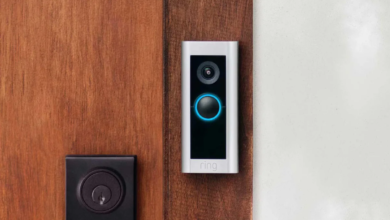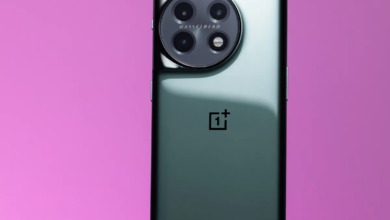Sustainable Tech Products That Are Worth the Hype
Discover sustainable tech products worth the hype Eco-friendly gadgets that reduce waste without compromising performance.

The growing demand for eco-friendly solutions has put sustainable tech products in the spotlight, offering innovative ways to reduce environmental impact without sacrificing performance. From energy-efficient smart home devices to biodegradable gadgets, these advancements are reshaping how we interact with technology. But with so many options claiming to be “green,” which ones truly deliver on their promises. This is explores the most impactful sustainable tech products that are worth the hype, examining their benefits, real-world applications, and long-term sustainability.
As climate concerns intensify, consumers and manufacturers alike are prioritizing sustainability in technology. Sustainable tech products are no longer a niche trend they’re becoming essential in the fight against environmental degradation. Whether through renewable energy integration, reduced e-waste, or ethically sourced materials, these innovations prove that cutting-edge technology and environmental responsibility can go hand in hand. The challenge now is identifying which products make a genuine difference and which are simply riding the green wave.
Sustainable Tech Products That Are Worth the Hype
The Rise of Sustainable Technology
As climate change becomes an increasingly urgent issue, companies and consumers alike are shifting toward greener alternatives. Sustainable technology is no longer a niche market—it’s a necessity. Innovations in renewable energy, waste reduction, and eco-conscious manufacturing have paved the way for products that are both high-performing and environmentally responsible. The key challenge lies in distinguishing genuinely sustainable solutions from those that merely capitalize on the trend.
Energy-Efficient Smart Home Devices
One of the most significant advancements in sustainable tech is the development of energy-efficient smart home devices. Products like smart thermostats, LED lighting systems, and solar-powered appliances help reduce electricity consumption while maintaining convenience. Brands like Nest and Philips Hue have pioneered smart thermostats and lighting that adapt to user behavior, minimizing energy waste. Additionally, solar-powered chargers and battery storage systems allow households to rely less on fossil fuels, making renewable energy more accessible.
Eco-Friendly Wearables and Gadgets
The wearable tech industry has also embraced sustainability, with companies producing devices made from recycled or biodegradable materials. For instance, the Garmin Instinct Solar watch uses solar charging to extend battery life, reducing the need for frequent charging. Similarly, brands like Pela offer compostable phone cases, addressing the growing problem of electronic waste. These innovations prove that functionality and sustainability can coexist, providing consumers with guilt-free tech options.
Sustainable Transportation Solutions
Electric vehicle (EV) and e-bikes have revolutionized transportation by offering low-emission alternatives to traditional cars. Tesla remains a leader in the EV market, but more affordable options like the Nissan Leaf and Chevrolet Bolt are making sustainable driving accessible. Beyond cars, e-bikes and electric scooters provide urban commuters with efficient, carbon-neutral travel options. Companies like VanMoof and Bird are leading the charge in micro-mobility, reducing traffic congestion and pollution in cities.
Green Computing and Eco-Conscious Electronics
The tech industry is notorious for its environmental footprint, but green computing initiatives are changing that. Companies like Fairphone produce modular smartphones designed for longevity and repairability, countering the disposable nature of modern electronics. Additionally, energy-efficient laptops, such as those with EPEAT certification, ensure lower power consumption and reduced e-waste. Data centers are also adopting renewable energy sources, with giants like Google and Apple committing to carbon-neutral operations.
Biodegradable and Recyclable Tech Accessories
The Growing Problem of E-Waste
Electronic waste is one of the fastest-growing environmental concerns, with millions of discarded tech accessories ending up in landfills each year. Traditional plastic cases, cables, and peripherals can take centuries to decompose, leaching harmful chemicals into soil and water. Biodegradable and recyclable tech accessories offer a solution by minimizing long-term environmental damage while maintaining functionality.
Plant-Based and Compostable Phone Cases
Leading the charge in sustainable accessories, companies like Pela and Wave Case produce phone cases from plant-based materials such as flax straw and biodegradable polymers. These cases decompose in compost within months, unlike conventional plastic alternatives. Brands are also incorporating recycled ocean plastics into their designs, further reducing waste while protecting devices.
Bamboo and Recycled Material Keyboards
Keyboards made from bamboo or post-consumer recycled plastics provide an eco-friendly alternative to standard plastic models. Bamboo is a fast-growing, renewable resource that requires minimal processing, while recycled plastic keyboards help divert waste from landfills. Companies like Logitech and Microsoft have introduced sleek, durable models that prove sustainability doesn’t mean sacrificing quality.
Solar-Powered and Recyclable Chargers
Solar-powered chargers reduce reliance on disposable batteries and grid electricity, while recyclable charging cables (such as those made from thermoplastic elastomers) break down more easily than traditional PVC-coated wires. Some brands now offer take-back programs, ensuring old chargers are properly recycled rather than discarded.
Modular and Repairable Accessories
The shift toward modular design in tech accessories like detachable earbud tips or replaceable cable connectors extends product lifespans and reduces waste. Fairphone’s modular headphones and Framework’s repairable laptops exemplify this trend, encouraging users to repair rather than replace.
The Role of Consumers and Brands in Adoption
While biodegradable and recyclable tech accessories are gaining traction, widespread adoption depends on both consumer choices and corporate responsibility. Supporting eco-conscious brands, properly recycling old gadgets, and demanding sustainable options can accelerate the industry’s shift toward circular economy principles.
Challenges of Sustainable Tech Products
High Production Costs and Premium Pricing
Sustainable tech products often require specialized materials and ethical manufacturing processes, leading to higher production costs. These expenses are typically passed on to consumers, making eco-friendly gadgets more expensive than conventional alternatives. While the long-term savings and environmental benefits justify the cost for some, the premium pricing remains a significant barrier to mass adoption.
Limited Availability and Scalability Issues
Many sustainable tech products are produced in smaller quantities due to niche demand or limited access to eco-friendly materials. This restricted availability makes it difficult for consumers to find these products in mainstream retail stores, slowing down widespread adoption. Additionally, scaling up production while maintaining sustainability standards presents a major challenge for manufacturers.
Performance and Durability Concerns
Some sustainable tech products face skepticism over whether they can match the performance and longevity of traditional electronics. For example, biodegradable phone cases may not offer the same level of drop protection as plastic ones, and solar-powered devices might struggle in low-light conditions. Overcoming these performance gaps is crucial for gaining consumer trust.
Greenwashing and Lack of Transparency
With the rise in demand for Sustainable Tech Products, some companies engage in greenwashing making false or exaggerated claims about their environmental benefits. Consumers often struggle to verify whether a product is genuinely sustainable or just marketed as such. Clearer certifications (like EPEAT or TCO Certified) and stricter regulations are needed to combat misleading claims.
Recycling and Disposal Challenges
While many sustainable tech products are designed to be recyclable or biodegradable, proper disposal infrastructure is often lacking. E-waste recycling programs are not universally accessible, and some “compostable” products require industrial facilities to break down properly. Without better recycling systems, even eco-friendly products may still contribute to waste.
Consumer Awareness and Behavior Change
Despite growing interest in sustainability, many consumers remain unaware of the environmental impact of their tech choices. Others may prioritize convenience and affordability over eco-friendly options. Educating users about the long-term benefits of sustainable tech and making these products more accessible is key to driving meaningful change.
Read More: AI and Mental Health: A New Frontier in Diagnosis
Conclusion
The rise of sustainable tech products marks a crucial shift toward environmentally conscious innovation that doesn’t compromise performance or convenience. From solar-powered gadgets to modular smartphones, these advancements prove that technology can be both cutting-edge and eco-friendly. As consumers become more discerning, the demand for genuinely sustainable options will continue pushing manufacturers to prioritize durability, energy efficiency, and ethical production methods.
Ultimately, embracing sustainable tech products isn’t just a trend it’s a necessary step toward reducing our collective environmental footprint. By supporting brands that prioritize authentic sustainability over greenwashing, we can drive meaningful change in the tech industry. The future of technology lies in solutions that benefit both people and the planet, and the choices we make today will shape a greener, more responsible tomorrow.
FAQs
What makes a Sustainable Tech Products?
A Sustainable Tech Products minimizes environmental impact through energy efficiency, recyclable materials, and long-lasting design.
Are sustainable tech products more expensive?
While some have a higher upfront cost, they often save money in the long run through energy savings and durability.
How do solar-powered gadgets work?
They use photovoltaic cells to convert sunlight into electricity, reducing reliance on traditional power sources.
Can sustainable tech really reduce e-waste?
Yes, products designed for repairability and recycling help decrease electronic waste significantly.
Which companies lead in sustainable tech innovation?
Brands like Tesla, Fairphone, and Garmin are at the forefront of eco-friendly technology advancements.











